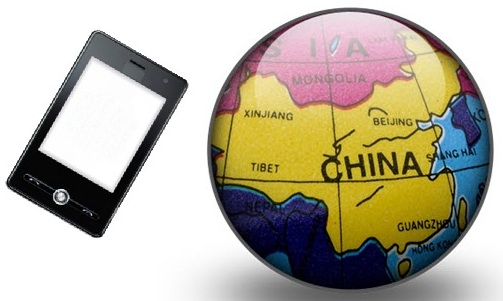 Nokia finds some stability in China
Nokia finds some stability in China
Finnish mobile device maker Nokia has been having trouble in numerous markets recently. The company may be a well known name in the field of mobile technology with its wide range of products and impressive smart phone portfolio, but it has experienced a difficult year in regards to its latest projects. Many of the company’s latest smart phones have been the subject of aggressive hype, but consumers have responded poorly to these products when they reached the market. China is one of the countries where Nokia has been seeing some success, but the Chinese market may not be enough to revitalize the company.
Growth in China may be due to mobile commerce
The Chinese market accounts for one-third of the world’s smart phone shipments. Mobile technology is in very high demand with consumers, especially those that are becoming more interested in mobile commerce. Nokia is one of the few smart phone makers that develops devices that are equipped with NFC technology. Much of mobile commerce revolves around the use of NFC technology, which is capable of transforming a smart phone into a mobile payment platform.
Consumers not yet won over by high-end Lumia phones
While the demand for mobile commerce has been growing among Chinese consumers, Nokia has had trouble establishing a strong foothold within the country. In the third quarter of 2012, Nokia likely sold fewer than 500,000 devices from its Lumia line in China. Less than 100,000 of these are estimated to be high-end Lumia devices, such as those equipped with NFC technology, like the 820.
China Mobile deal could help boost Nokia performance
Nokia is expected to see some major gains in China due to a new deal with China Mobile, the country’s largest mobile network operator. Per the deal with China Mobile, Nokia will begin selling a localized version of its high-powered Lumia 920 smart phone, which is equipped with NFC technology. This deal with China Mobile could increase the sale of high-end mobile device in the country by as much as 50%.
 Razorfish selected to address growing need for mobile commerce services
Razorfish selected to address growing need for mobile commerce services
Target, one of the largest retailers in the U.S., has been looking to engage mobile consumers in a more dynamic way recently. The company experienced promising results from its sales initiatives over the Thanksgiving shopping weekend, seeing a major uptick in mobile traffic and mobile sales. The company is now looking to overhaul its e-commerce business and has hired Razorfish, a digital interactivity agency and marketing firm. Razorfish will be responsible for revitalizing Target’s e-commerce division in the hopes of being more in line with the needs of mobile consumers.
Razorfish to help develop new mobile application and e-commerce platform for Target
Target selected Razorfish after having vetted the agency for several months, beginning in August of this year. Razorfish was able to beat out competition from 10 other agencies in order to land the deal with the major retailer. As such, Razorfish will work to re-launch Target.com for the PC, mobile, and tablet platforms. Part of this effort will include t he development of a mobile application that will help boost the mobile shopping experience in stores.
Target takes note of growing momentum behind mobile commerce
Though Target.com has not experienced any significant problems since being re-launched last year, the retailer is becoming more aware of the need to reach out to mobile consumers. Mobile commerce is becoming a powerful force in the U.S. market and has gained considerable momentum in the wake of the Thanksgiving shopping weekend. Target saw firsthand how powerful mobile commerce can be and is working to become more accommodating of mobile consumers through overhauling its e-commerce presence.
Retailer eyes QR codes
Target will also begin focusing more on QR codes in its physical stores as a way to provide mobile consumers with more robust service. These codes will be used to distribute information about certain products to interested consumers. The QR codes will also help supply consumers with deals and special offers. QR codes have long been considered a powerful tool in the mobile marketing space.
 Nokia finds some stability in China
Nokia finds some stability in China
 Razorfish selected to address growing need for mobile commerce services
Razorfish selected to address growing need for mobile commerce services